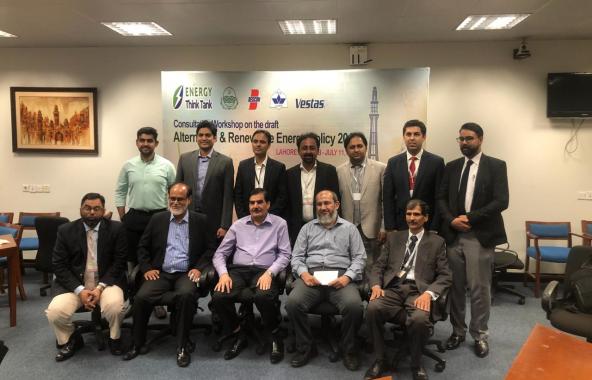
The LUMS Energy Institute recently organised a consultative workshop on ‘Alternative and Renewable Energy (ARE) Policy 2019’ in collaboration with the Energy Think Tank, a consultant agency.
The workshop was organised to discuss the ARE Policy which is based on the Renewable Energy Policy 2006. The Renewable Energy Policy 2006 was amended by the Legal Framework of 2013 (RE Policy), and has now expired. Further, the ARE Policy will provide the relevant renewable sources of energy generation.
The draft circulated by the Government points out that small hydropower has been taken out of the purview of the ARE Policy with a defined role to be played by the Provinces. Under the Constitution of Islamic Republic of Pakistan 1973 and the Regulation of Generation, Transmission & Distribution of Electric Power Act 1997, the ARE Policy is to be approved by the ‘Council of Common Interest’ where Provinces are members.
The work was organised with the aim to take an initiative and convene consultative workshops and gather stakeholders for their comments and input. The co-chairs of the workshop were LUMS faculty, Dr. Naveed Arshad (Computer Science) and Dr. Nauman Ahmad Zaffar (Electrical Engineering).
The workshop attracted a large number of participants from notable organisations of the sector, including officials from the Government of Punjab’s Energy division, officials from DESCON, NEPRA, NTSC, LESCO, MEPCO, PPDB, PEECA, CPPA, PPIB, FESCO, US-Aid, Nishat Power, VESTAS Wind, Siemens, Hadron Solar, Shams Power and AEDB.
This workshop will be arranged again once in each province, Islamabad, Azad Kashmir and Gilgit Baltistan. The notes and comments will be published in the form of a report for decision makers at the provincial and Government level.
Dr. Naveed Arshad, speaking about the outcome of the workshop, said: "Adoption of advanced renewable technologies is vital for short, medium and long-term sustainable electricity provisioning for all to help the power sector in Pakistan.”
The workshop backed the strategic goals of the LUMS Energy Institute, which include contributing to energy planning and policymaking, increasing and optimising the share of the renewable and sustainable energy into the overall energy mix. The Institute aims to carry out interdisciplinary research, development and capacity building in power and energy planning, renewable energy technologies, and grid modernisation.












